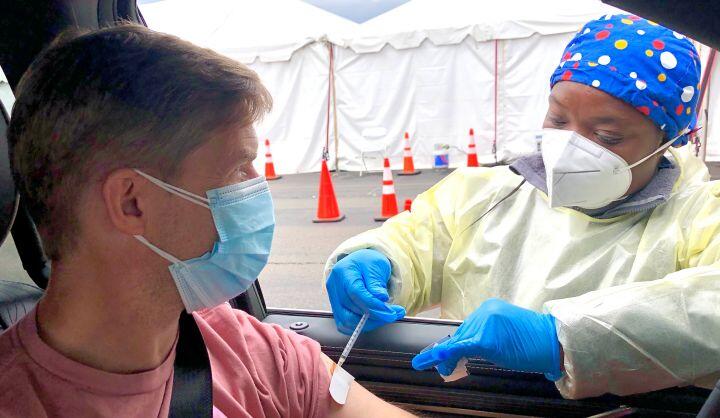- May 3, 2021
- Indian Country
Founded by Professors Joseph P. Kalt and Stephen Cornell in 1987, the Harvard Project on American Indian Economic Development (HPAIED) aims to “understand and foster the conditions under which sustained, self-determined social and economic development is achieved among American Indian* Nations through applied research and service.” Housed within Harvard’s Ash Center for Democratic Governance and Innovation, HPAIED plays a pivotal role in centralizing and disseminating resources that help tribal leaders and local decision-makers learn from others who have faced similar challenges. With a unique integration of digital tools, data-sharing toolboxes, and innovative partnerships, HPAIED has managed to become an unparalleled resource for the 574 federally-recognized tribes in the United States. This article will discuss how they did this and share resources for other local governments.
Self-Determination and Cooperation in Indian Country
Far from the harmful stereotypes perpetuated by ideas like the “noble savage” myth and sports team mascots, Native Americans today face complex and diverse issues, including long-standing struggles for political sovereignty, economic development, constitutional reform, cultural promotion, land and water rights, religious freedom, and education. While each tribe has a distinct history, geography, culture, and economy, they also share many of the same challenges. Like any other independent nation, each tribe possesses inherent sovereignty, with policies designed and implemented through their respective political systems and institutions.
In 1975, the U.S. Congress passed the Indian Self-Determination and Education Assistance Act, which allows for tribes to compact or contract services provided by the federal government in an effort to be more responsive to the needs of their members. For example, many tribes have assumed responsibility for health care provision from the Indian Health Service and for policing from the Bureau of Indian Affairs’ Office of Justice Services. On a fundamental level, the Act posits that tribes themselves hold the power to affect change among their own citizens, and that self-governance is pivotal in building and sustaining resilient communities. As tribes continue to navigate the path toward self-determination, the lessons learned, and successes achieved serve as blueprints for other tribes and local governments facing similar challenges.
Yet, the lack of a centralized organization or entity that integrates and shares these experiences and knowledge has long meant that each tribe has had to single-handedly confront the complexities of autonomous decision-making. Since its inception, HPAIED has played an instrumental role in providing research and practical tools in partnership with Indian Country to bolster self-determination among tribal governments throughout the United States.
For over three decades, HPAIED has made an impact well beyond the Harvard community, engaging in research studies, the administration of an awards program, and advisory and educational projects, ultimately becoming one of the most influential organizations in contemporary Native America. In 1998 it inaugurated the Honoring Nations awards program with the goal of “celebrating, documenting, and disseminating the stories of the outstanding programs in self-governance that are daily emerging from the Native nations.” According to Megan Minoka Hill, Director of Honoring Nations and an enrolled descendant of the Oneida Nation of Wisconsin, “the idea behind the program is to shine a light on successes in Indian Country and shift the conversation away from what doesn’t work to what does. Our hope is that tribal leaders can both learn from and be inspired by each other’s achievements.” Every year, Honoring Nations receives hundreds of applications which highlight projects spanning Indian education, health care, natural resource management, governmental reform, and economic and cultural development. A volunteer Board of Governors consisting of distinguished individuals from the public, private, and nonprofit sectors guide the evaluation process, which ultimately selects up to six programs based on “effectiveness, significance to sovereignty, cultural relevance, transferability, and sustainability.” In addition to the recognition and media exposure that comes with receipt of an Honoring Nations award, honorees receive financial support to share their success stories with other governments, thus contributing to the facilitation and dissemination of best practices. To date, Honoring Nations has recognized 136 exemplary tribal government programs, practices, and initiatives.
As an example of one such award, in 2018 the Alaska Native Tribal Health Consortium (ANTHC) was recognized for their innovative Health Aide Training Programs. The Programs form the backbone of the Alaska Native health care system. Trained in community, dental, and behavioral health, aides have become an indispensable part of healthcare delivery, and now practice in over 170 communities in rural Alaska and cities across the state. Most recently, they have been instrumental in coordinating a quick and efficient COVID-19 vaccination rollout among Alaska Natives, who have suffered the state’s highest pandemic deathrate.
21st Century Data Tools for Indian Country
In 2013, HPAIED’s team was approached by the Google American Indian Network, an employee resource group, to explore ways in which Google might complement HPAIED’s service delivery through tools such as Google Cultural Institutes, which works to “bring the world’s art and culture online for everyone,” and Google Voyager, which “showcases interactive tours, quizzes, and layers that aim to educate everyone about the world.” This partnership has led to the creation of several digital tools that help to fulfill HPAIED’s mission, such as the Honoring Nations Google Map interface, which showcases all past honorees in an accessible platform so that users can easily identify and connect with successful examples of self-governance. Most recently, in 2018, this collaboration led to the launch of the Nation Building Toolboxes, a collection of mixed media learning tools derived from the real-world experiences of tribes, aimed at guiding the implementation of best practices in community self-governance. Based on Google Sites, toolboxes are curated in conjunction with the Native Nations Institute at the University of Arizona and allow tribal leaders and practitioners to explore tools and resources to bolster their own nation building efforts. To date, five nation building toolboxes have been developed: 1) Indigenous Business Enterprises 2) Constitutional Reform in Indian Country 3) Native Justice Systems 4) COVID-19 Resources for Tribal Nations and 5) Impacts of the McGirt Decision. These toolboxes offer innovative ideas, rather than prescribing one-size-fits-all solutions, and provide data, mapping tools, and resources so that tribes can adapt them to their own realities and ultimately find their own way forward, on their own terms.
As expected, one of the most popular toolboxes has been one addressing the COVID-19 pandemic, which was co-created with the Johns Hopkins University Center for American Indian Health, and integrates resources that demonstrate ways to build governance capacity and introduce evidence-based best practices that tribes have used to respond to the various consequences of the pandemic. These include a wide variety of topics ranging from organizing food distribution efforts to designing a system of telehealth services. The impact of these resources cannot be overstated as Native Americans have been disproportionately affected by the pandemic. A recent article from the Harvard Gazette highlights how “For Native Americans, COVID-19 is the worst of both worlds,” as on one hand, higher risk of serious complications is exacerbated by high rates of comorbidities, and on the other hand, the lockdown restrictions have considerably shrunk tribal tax bases, resulting in a loss of funding that could have been used to help confront the health crisis. In this context, HPAIED’s toolbox can arm tribal leaders with the power of information in order to tackle the many issues that tribes are facing as a result of the COVID-19 pandemic.

This toolbox’s success in inspiring tribes to adapt some of these digital tools to their own realities has even made it to a Google co-produced, 2021 Webby Award-nominated short film, Tribal Schools Embrace Distance Learning with Google Tools. The film features the Native American Advancement Foundation (NAAF), an organization located on the Tohono O'odham Nation in Arizona, which partnered with the Nation to build a digital support system to mitigate the impact of the pandemic on education, leveraging the experiences of the Yurok tribe in northern California in building their own language learning resource. In turn, the success of Tohono O'odham was shared through the COVID-19 toolbox, to serve as future inspiration for other tribes facing similar challenges.
Innovations in sharing data and information such as these toolboxes evidence not only tribes’ abilities to design their own success, but also their willingness to learn from and help each other in the face of adversity. Equipping tribal leaders and local policymakers with the digital tools to strengthen their communities has proven critical in advancing their quest for self-determination. And in that sense, efforts and organizations such as HPAIED’s which curate, consolidate, and disseminate proven methods of success have set the standard for inter-tribal collaboration, and serve as a model for cooperation among other city and local governments. As such, Native Nations can teach us all an important lesson in government leadership: the power of sharing information to stand united in the face of adversity.
*In this article, the terms Native, Native American, and American Indian/Alaska Native are used interchangeably, in accordance with the Urban Indian Health Institute’s practices. These terms acknowledge the varying ways that North American Indigenous peoples are forced to identify within the American racial structure and English language.




